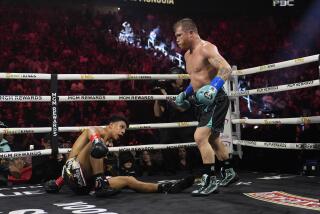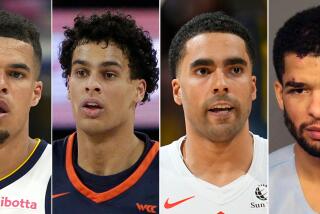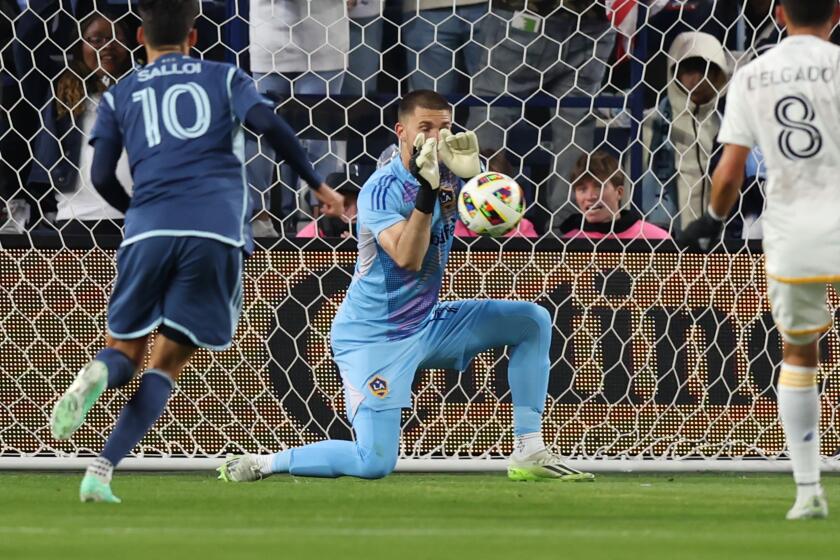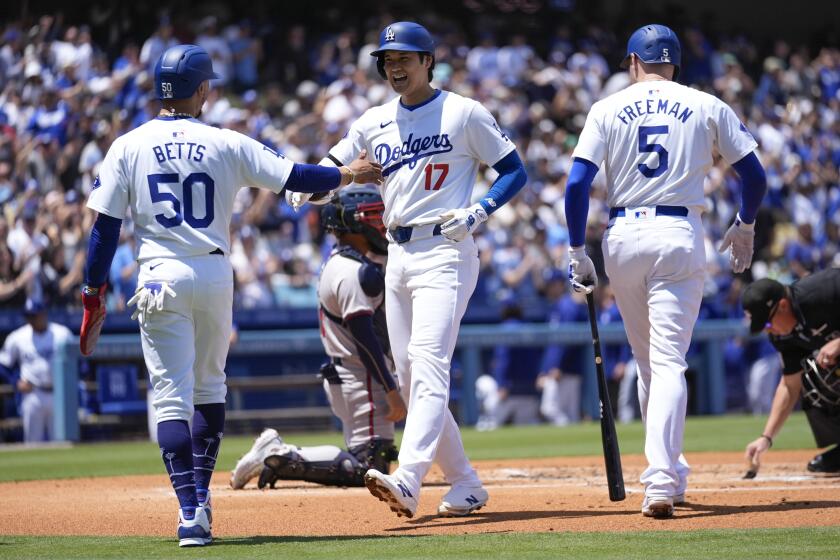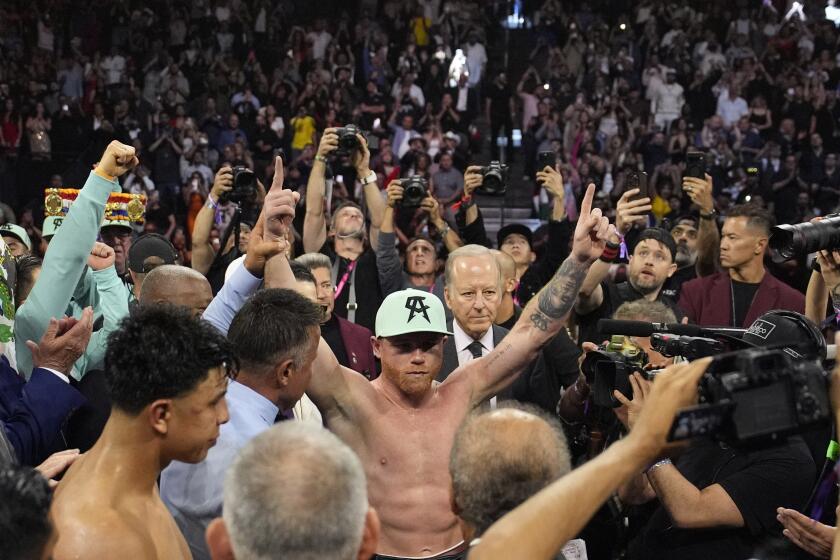The Joy of Hitting, On and Off the Football Field : Community Essay: A former college linebacker struggles to keep from using his fists when anger rises.
I haven’t hit anyone off the field since I chose to stop playing football following my sophomore year at Dartmouth College, but I can’t count the times I’ve come close.
Once you strap on a helmet, run full speed at your opponent and bash your head into his chest, you’re hooked for life on the joys of hitting. Hitting is not something you can turn off easily when you leave the gridiron. It doesn’t matter at what level you played or for how long or at what position--linebacker, running back, strong safety, even quarterback. If you become addicted, the desire to hit someone just one more time can be powerful. I know. I’ve been struggling with violent urges for more than nine years--one third of my life and three years longer than I actually played organized football.
When I’m angry, I want to hurl the nearest heavy object through a window or smash something fragile against a wall. But I don’t have to be angry to feel the urge to strike out. Often when I’m walking down a crowded street, I imagine driving my forearm through a stranger’s chest, knocking him to the ground.
I grew up dreaming of a chance to play football. My grandfather, my dad and many of my cousins had started on their high school and college teams. My dad played for the national champion USC Trojans of 1967. One cousin played for the Seattle Seahawks.
My dad, not wanting me to get hurt, refused to let me play organized tackle football until I started high school. So I cut my teeth on neighborhood games and flag football in Irvine. We knocked each other down, but the adrenaline didn’t kick in until high school.
In the neighborhood, I never worried about getting hurt. I wasn’t nervous before the start of a game. But when I played for Mater Dei High School, I was full of anxiety at kickoff. My heart quickened, because I knew that any person on the other team could cut me down. And I could do the same to them. All it took to change my anxiety to euphoria was the first hit, which many times ended with me on the ground, a smile still on my face.
I started on the offensive line. My responsibilities as a guard--opening holes for the running backs and protecting the quarterback--required that I learn to control my aggression. If I was too eager, I overextended and subjected the quarterback to a vicious hit from a defensive player.
Occasionally, my coach would send me in to play defense. As an inside linebacker, I was free to roam the field in pursuit of the ball carrier. On every play, I battled to make impact with the runner at the line of scrimmage, wrap my arms around his waist and drive him backward into the turf. When I arrived at Dartmouth, I told my coach I only wanted to play linebacker.
By my sophomore year, I gained a reputation for being a big hitter. Most of my teammates and coaches thought I was crazy. It gave me a mental edge on the field.
I was only 5 feet 11 inches tall and weighed 210 pounds. Many guys on my team were bigger and worked out with weights. Since I hated lifting weights, I tried my hardest to make my opponents fear me. I wanted them to know that if they planned on hitting me they better be ready to get hit back. I was going to throw everything I had at them on every play.
A few weeks into the season, my behavior wasn’t just part of an image anymore. I lost control. I became consumed with my aggression. My coaches loved to watch me hit. When we watched the film of our last game, they would replay my best hits over and over. It boosted my ego and made me want to hit even more.
Off the field, I became a role model to some freshmen living in my dormitory. I was responsible for all the damage caused to our building that fall. If I didn’t break the window, one of the freshmen imitating me did. I fed off the power I felt when I destroyed something. I had pushed myself so far into a life of violence on the football field that I couldn’t stop myself off the field. My aggression, combined with heavy drinking, turned me into something I later came to hate.
I didn’t stop to think about the consequences of my actions until my mom died of breast cancer in February, 1986. Losing her scared me. I wanted her to be proud of me. I knew she had worried about my drinking. So I gave up alcohol for almost five months.
That summer I also decided to quit football. I left the game I loved, but not because my mom discouraged me from playing. She cheered me on in almost every game I played at Mater Dei. I quit because I knew she wouldn’t have approved of my violent behavior off the field. And the only way I saw to stop myself from breaking windows was to avoid opportunities to strike out even in socially acceptable ways.
But a former football player who loves to hit can never fully control his violent urges. My best friend from high school tries to find ways to feed his addiction. He’s dived off cliffs, climbed Mt. Kilimanjaro, water skied barefoot at high speeds and skied off snow and ice cornices. I’m too afraid of dying to push myself that far. So I try always to control my emotions. I swallow my urge to tackle a man as he runs down the street. I quickly clear my mind after I imagine myself punching a person--man or woman--sitting next to me. And when I’m in my car, I take a deep breath instead of ramming the driver in front of me who is obeying the speed limit.
I don’t know if I’ll succeed in repressing my violent behavior for the rest of my life. But I’m starting to have some confidence that I won’t end up sitting at the defense table in criminal court, surrounded by a team of high-priced attorneys.
More to Read
Get our high school sports newsletter
Prep Rally is devoted to the SoCal high school sports experience, bringing you scores, stories and a behind-the-scenes look at what makes prep sports so popular.
You may occasionally receive promotional content from the Los Angeles Times.

